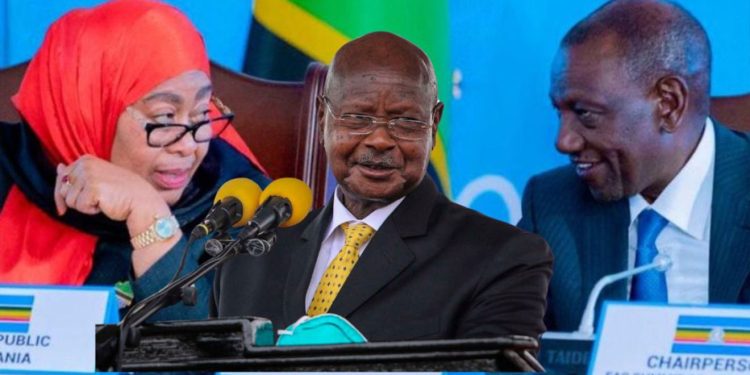The region of East Africa comprises countries such as Kenya, Somalia, Eritrea, Mauritius, Djibouti, Réunion, Mayotte, Seychelles, South Sudan, and Madagascar. Women’s issues remain a serious concern in East Africa, with a particular focus on addressing poverty, unemployment, discrimination, violence, and Patriarchal norms.
In Kenya, for example, the Basic Education Act (Kenya) (2013) guarantees the right to free and compulsory basic education, prohibits discrimination, and requires the provision of free tuition in public schools.
The government of Kenya introduced Free Primary Education (FPE) in 2003 and the Free Day Secondary Education (FDSE) in 2008 to improve access, particularly for girls.
The Kenya Primary Education Equity in Learning (KPEEL) Program (2022-26) clearly lists “girls’ participation in schooling”.
At the same time, the Education and Training Sector Gender Policy (Kenya) 2015 sets out a framework for gender equality in education to ensure that gender is not the basis for denying access, supporting girls and women, and promoting leadership and participation.
In 2017, Kenya adopted an amendment (via the Basic Education Amendment Act (Kenya)) requiring the government to provide free, sufficient, and quality sanitary towels to every girl child in public basic education institutions who has reached puberty.
Noteworthy, women in Kenya continue to face gender-based violence, economic exclusion, limited access to education and healthcare, and cultural discrimination.
Addressing these requires stronger enforcement of gender equality laws, increased education opportunities, and empowerment programs at the community level.
What Women in Somalia Go Through
The government of Somalia, together with the World Bank and other development partners, has launched the “Somalia Empowering Women through Education and Skills Project” (locally known as Rajo Kaaba) to expand access to education and training for women and girls.
According to the government’s national review, progress has been made in expanding vocational training and skill development for women and girls, as well as in improving educational infrastructure, particularly in rural/conflict-affected areas.
Also Read: How to Address Women Empowerment in Nigeria Through Education
At the local level, district government initiatives also exist to promote women’s education. For example, in the Waberi District of Mogadishu, a program provided free education to adult women (illiterate or innumerate) through a collaboration between the local government and a school.
Many girls, especially in rural areas, have limited access to schooling due to poverty, insecurity, and cultural norms that prioritize boys’ education.
High dropout rates are common because of early marriage, domestic responsibilities, and lack of safe school environments in some areas that need further addressing.
The situation in Eritrea
Eritrea’s national education policy stipulates that basic education (up to grade 8) is compulsory by law, and education is free for citizens through primary, secondary, and tertiary education.
The Government is obviously committed to “elimination of gender disparity at all levels of the education system” and “ensuring girls’ full and equal access to and achievement in basic and secondary education”, including literacy programs for women.
Under the Global Partnership for Education (GPE) framework, the Education Sector Plan 2022-26 emphasizes equity, and specifically targets “girls’ education, particularly for the poorest girls living in remote areas.” The Government has introduced a quota system and affirmative measures for girls.
For example, providing slightly lower entry scores for girls in university, nursing, and technical schools in order to boost their participation.
The Government of Eritrea has implemented a multifaceted strategy for women’s education, encompassing free and compulsory basic education, affirmative action for girls, adult literacy programs for women, gender-sensitive infrastructure, community awareness campaigns, and vocational/skills training.
Progress has been made, especially in narrowing the gender gap and improving access. However, key challenges remain in rural access, retention, quality, socio-cultural norms, and monitoring.
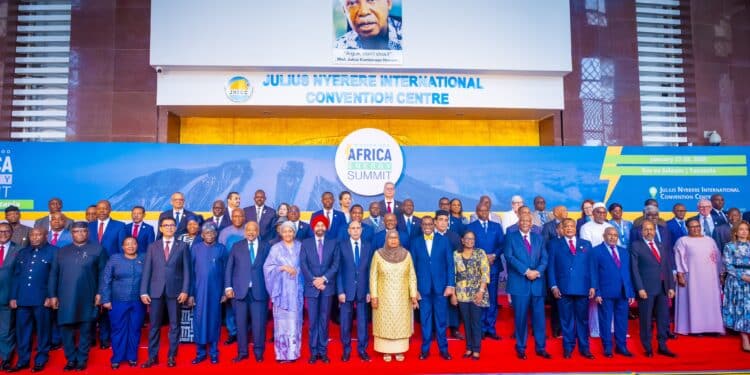
The story of Mauritius
The National Women’s Council (under the Ministry of Gender Equality, Child Development & Family Welfare) initiated an Adult Literacy Program since 1986.
It aims to educate women, including teaching reading, writing, numeracy, conversational skills, and functional literacy, while also providing support for health and rights awareness.
The government of Mauritius has introduced the Early Digital Learning Program (EDLP) for primary education, including distributing tablets/headsets to schools with pedagogical content supporting digital literacy among children (including girls).
A national STEM strategy emphasizes gender equality in STEM (Science, Technology, Engineering, and Mathematics) education, including encouraging girls to participate in STEM subjects and breaking down historical barriers. The Mauritius Digital Promotion Agency (MDPA) organized “Girls in ICT” boot camps to encourage female participation in ICT careers.
The National Gender Policy 2022‑2030 lays out Mauritius’s roadmap to institutionalize gender mainstreaming across the public sector, establish gender-cells in ministries, expand Women Empowerment centers, and track gender statistics.
Although enrollment is high, the representation of women in tertiary education, particularly in STEM/ICT fields and related careers, remains lower. Challenges include that adult women with limited formal education still face barriers.
What should be done in Djibouti
The United Nations Development Program (UNDP) supported initiative titled “A literate woman is worth two” reports that the government via the National Union of Djiboutian Women (UNFD) and the Ministry of Women and the Family (MFF) has launched a structured adult literacy strategy for women empowerment.
According to the Oxford Business Group, in 2018, the government, with support from the World Bank, launched the “Support for Women and Youth Entrepreneurship Project” to support over 6,000 female/youth entrepreneurs.
Legislation and programs also address girls who drop out, women working in male-dominated sectors, and entrepreneurship linking education with economic empowerment. Gender disparities persist.
For example, in completion and transition rates for girls compared to boys. Rural, refugee, and displaced populations require further prioritization.
Mayotte & Reunion milestones
“Cadres d’Avenir Mayotte” Program was a government program launched in 2018 for Mayotte to train local high-potential students and professionals (from Mayotte) to study in France or Réunion in priority sectors, then return to Mayotte.
An educational and gender-equality project utilizes sport and pedagogy the promote women’s empowerment. A project by AFD in partnership with the NGO PLAY International uses sport (“playdagogie”) for children (ages 7-11) in Mayotte to raise awareness about gender equality.
While infrastructure and general education access are improving, there is limited publicly available data on specific targeted programs for girls/women, with a particular focus on scholarships for girls and adult women literacy initiatives. in Mayotte.
Women in Mayotte face multi-layered challenges, including unemployment, being less likely to access quality jobs/training, facing substantial domestic burdens, having weaker access to support and justice for violence, and operating within a context of broader socio-economic disadvantage. Efforts are being made by the government, NGOs, and local groups to address the challenges.
Similarly, Women in Réunion face challenges related to limited access to high-level positions, particularly in business and politics, despite parity laws in local elections.
They are also underrepresented in the labor market and earn less than men.
Besides this, barriers include stereotypes that restrict their career choices, with a significant percentage of women living in poverty, especially those who are single mothers.
How Seychelles is doing it
In January 2022, the Seychelles government began providing free sanitary/hygiene products to all girls in both state and private secondary schools.
In August 2023, a program run by the United Nations Institute for Training and Research (UNITAR), financed by the Government of Japan, opened to upgrade Seychellois women and youth: “Developing Essential Digital Skills for Women and Youth in Africa”.
The Government approved an ICT in Education & Training Policy 2022-2027 with particular focus on integrating digital infrastructure, educator training, and ICT skills across the system. This supports women and girls entering and succeeding in technology fields.
Also Read: Reimagining Higher Education: The Entrepreneurial University as Africa’s Beacon of Hope
In April 2024, the government signed a Memorandum of Understanding with Unicaf (an online higher-education provider) to expand access to Bachelor’s, Master’s, and Doctoral degrees for all Seychellois—including women.
Women often earn less than men for similar work and are concentrated in lower-paying sectors such as education, health, and services. Limited access to higher-paying, male-dominated industries persists.
Crisis in South Sudan
Girls’ Education South Sudan (GESS) & Phase 2 (GESS2) program targets improving access, retention, and completion of primary and secondary education for girls, and improving the learning environment more broadly in South Sudan.
The government, via its national education ministry (Ministry of General Education and Instruction (South Sudan) has worked with partner organizations under GESS to roll out “girl-friendly” schools. For example, separate washrooms, gender-sensitivity teacher training) and supported thousands of teachers and schools.
In July 2025, the government, through its education ministry, launched a four-year integrated program funded by GPE (System Transformation Grant, Girls’ Education Accelerator, System Capacity Grant) to transform basic education in South Sudan, with a particular focus on reaching girls and marginalized groups.
The ongoing violence and civil conflict have displaced many women and girls, exposing them to gender-based violence (GBV), including rape and forced marriages. Insecurity restricts women’s movement to access to education and employment opportunities.
School drop out in Madagascar
The Let Us Learn Madagascar Program, supported by UNICEF in Madagascar, is specifically designed to improve girls’ access to education. It has focused on children in transition from primary to lower secondary school and seeks to keep more girls in school.
East Africa Girls Empowerment and Resilience (EAGER) Program, Madagascar, is a project implemented by the country’s Ministry of National Education in cooperation with the World Bank (WB) for women’s empowerment.
Improving the Technical & Vocational Education System in Madagascar. Under the broader “Global Gateway” initiative by the European Commission, this project has supported technical & vocational education (TVET) in Madagascar with a gender perspective. Many such initiatives have recognized that simply enrolling girls in school is not sufficient.
Barriers include distance to school, poverty, gender norms, school infrastructure, vocational relevance, and teacher training.
Many girls, especially in rural areas, drop out of school early due to poverty, early marriage, or household responsibilities. Poor infrastructure, long distances to schools, and a lack of sanitation facilities have also discouraged girls from continuing their studies.
The Way Forward:
Women’s empowerment in East Africa is crucial for achieving sustainable development, gender equality, and inclusive economic growth. While progress has been made in areas such as education, health, and political participation, significant gaps remain that require immediate attention.
Follow our WhatsApp Channel and X Account for real-time news updates.
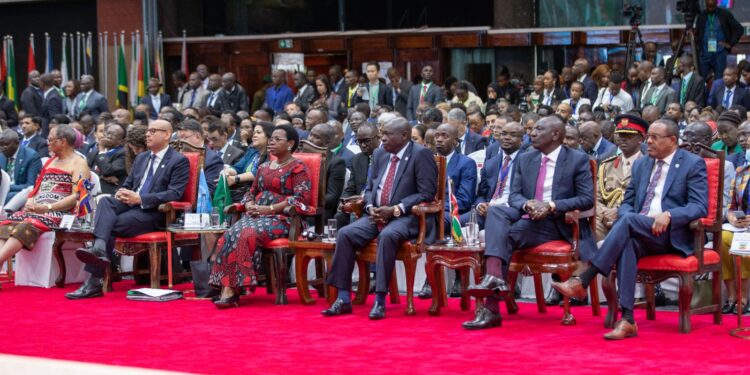

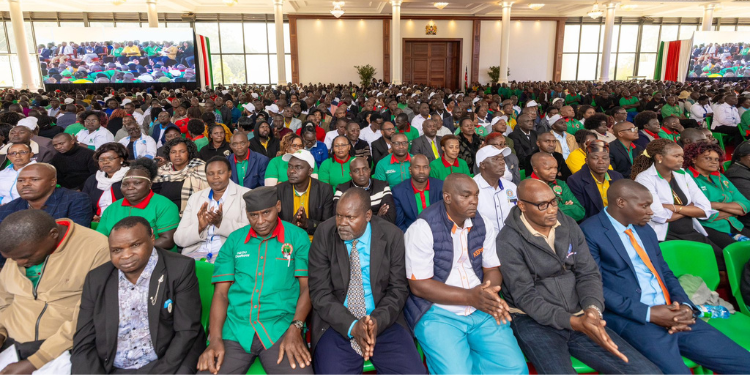
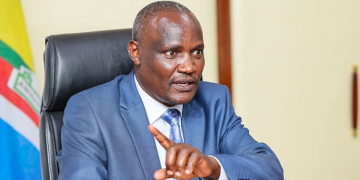


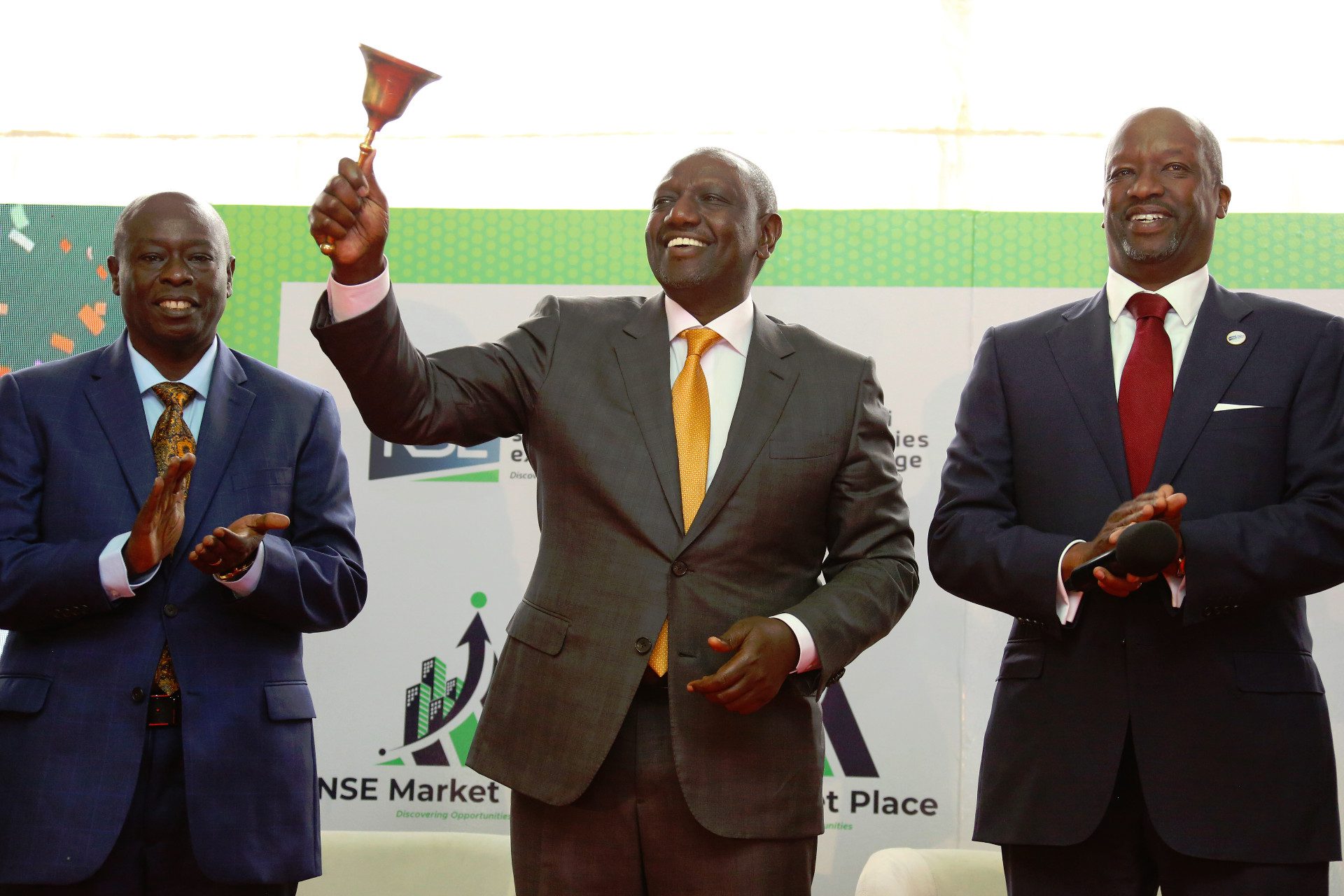
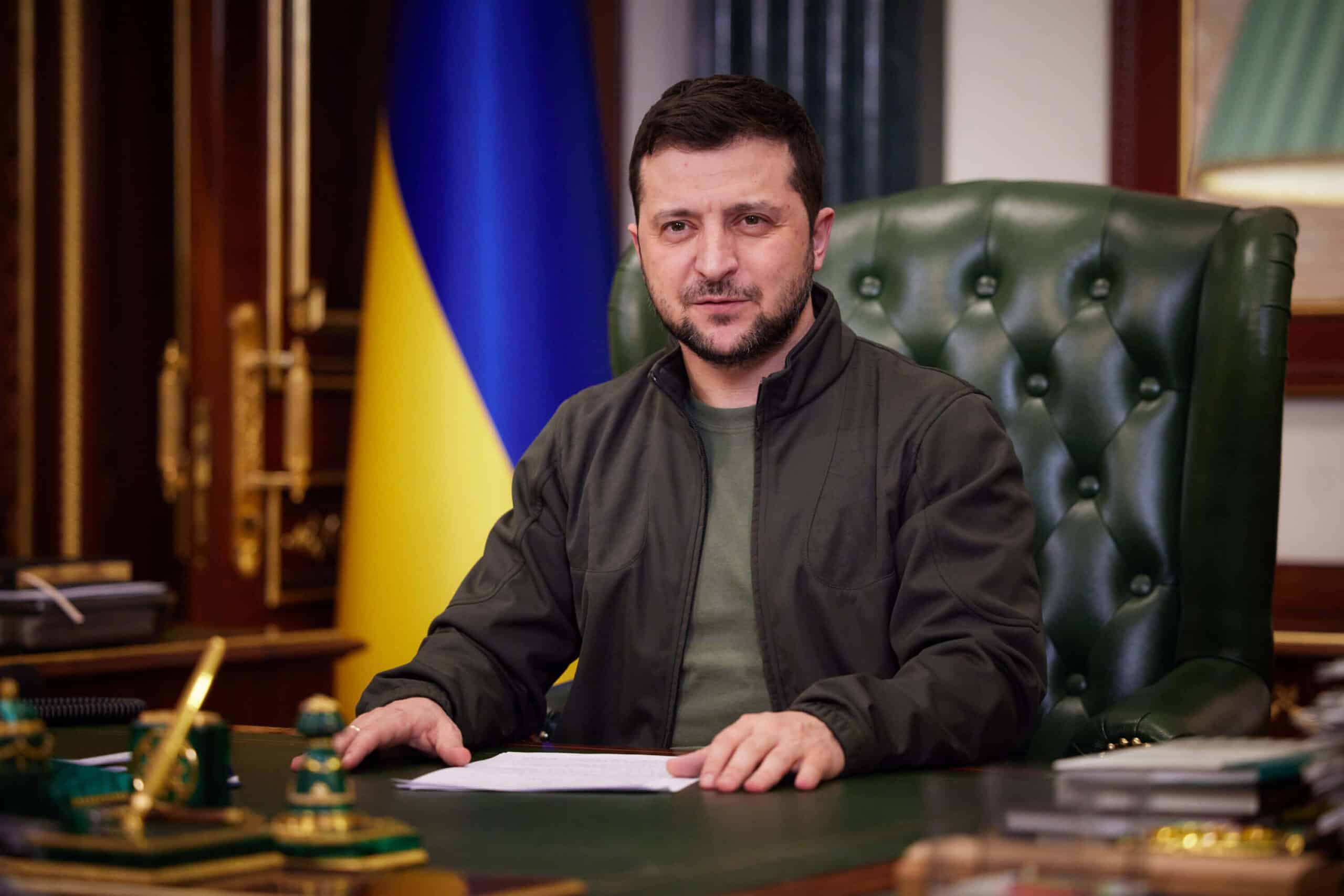
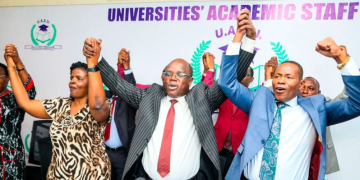

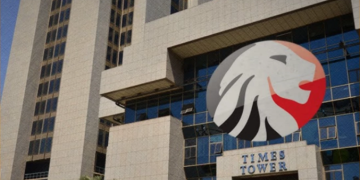






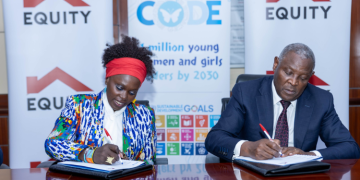
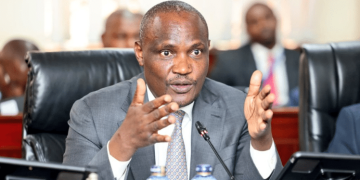

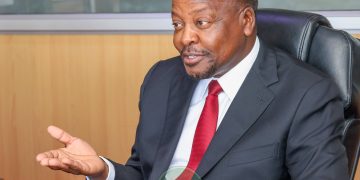
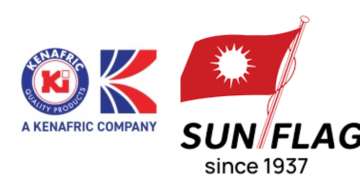

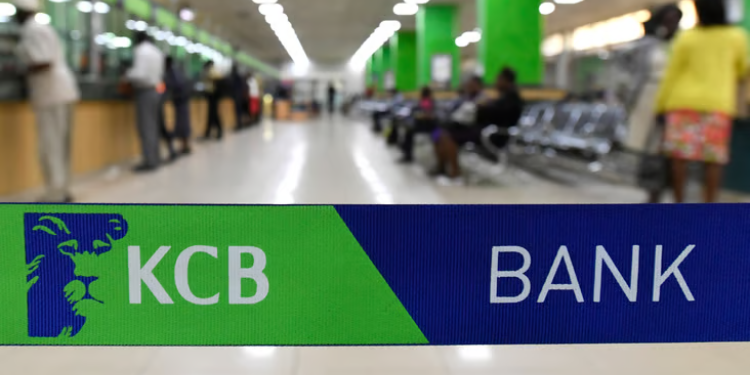
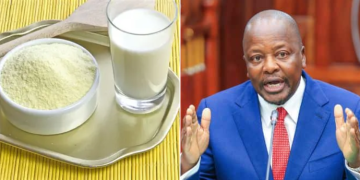


























![Senator Allan Chesang And Chanelle Kittony Wed In A Colourful Ceremony [Photos] Trans Nzoia Senator Allan Chesang With Channelle Kittony/Oscar Sudi]( https://thekenyatimescdn-ese7d3e7ghdnbfa9.z01.azurefd.net/prodimages/uploads/2025/11/Trans-Nzoia-Senator-Allan-Chesang-with-Channelle-KittonyOscar-Sudi-360x180.png)




















